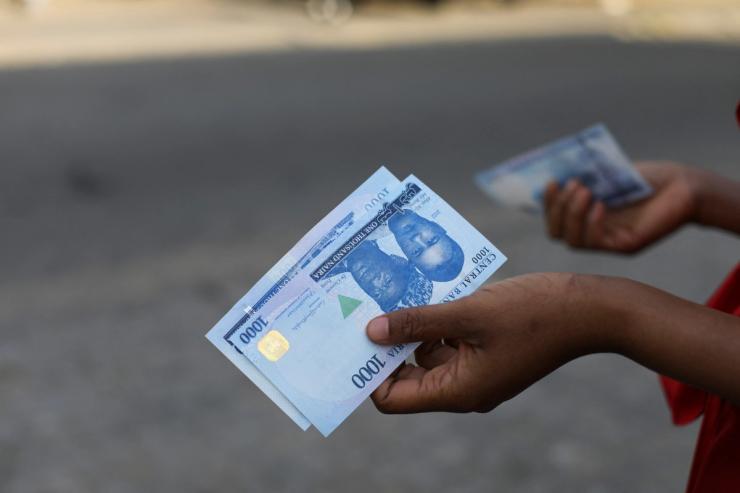The News
Nigeria’s push to bring all citizens into the financial system through bank account ownership has expanded the country’s capacity to mobilize domestic capital to fund projects, the deputy finance minister told Semafor.
Increased internet access and smartphone availability have helped to spur a decade-long boom in financial inclusion in Nigeria, with 64% of the adult population now having access to bank or non-bank accounts compared to less than a quarter in 2008.
The rise has led to “greater savings” and more frequent financial activity by consumers, thereby “increasing capital formation and making it easy for us to mobilize capital for development,” Doris Uzoka-Anite, Nigeria’s minister of state for finance, said at Semafor’s Next 3 Billion stop in Abuja on Wednesday. Higher transaction volumes captured on digital channels increase the data points available for policymakers to more accurately determine interest rates, forecast inflation, raise bonds and issue commercial papers, she said.
Rising bank account ownership in Nigeria mirrors a global trend. In sub-Saharan Africa, 58% of adults now have accounts that grant access to the financial system compared to less than 30% in 2011, according to the World Bank’s Global Findex database. About 43% of Nigerian adults save formally, per Global Findex, a mark the government plans to improve on, the minister said.
With the exception of the Middle East and North Africa, sub-Saharan Africa still lags behind other low and middle income regions on financial inclusion, raising the urgency for more action especially to increase trust, experts say. “The area where we are still fine-tuning our regulation is in data protection,” Uzoka-Anite said, noting that fraud remains a major challenge to accelerating financial inclusion in Nigeria.
Know More
African countries often struggle to raise domestic funding for investments due to low savings rates and limited tax revenue, economists say. It forces a search for external funding from international credit markets usually at high interest rates.
Nigeria’s central bank developed a formal financial inclusion roadmap in 2012, with a target of enabling 80% of the population to own bank accounts and transact through formal channels by 2020.
That target was not met and remains in view even after two revisions, the most recent being in 2022. But the emergence of digital banking apps like OPay, PalmPay and Moniepoint — whose systems proved more effective than those of traditional banks during a disruptive cash crunch two years ago — provided visceral evidence of progress, Uzoka-Anite said.
The central bank’s initial approach of prioritizing commercial banks as the only vehicles for financial inclusion “prevented scale,” said Serah Makka, executive director for Africa at the ONE Campaign. But the pool of operators licensed to enable financial transactions has now grown to include mobile network operators like Airtel and MTN, showing that “intelligent regulators” can safely manage the need for innovation with their duty to safeguard the financial system, Makka said.
Step Back
Nigeria’s financial regulation landscape has evolved over the last decade from one that required subservience to the central bank to an atmosphere of “true engagement,” said Jay Alabraba, co-founder of Lagos-based fintech company Paga. The relationship has improved such that the bank now regularly requests input from industry operators on draft regulations before they become binding, he said.
Beyond central bank policy, infrastructure investments will be key to Nigeria’s financial inclusion agenda and the government has committed to rolling out more fiber optic cables to increase internet connectivity, Uzoka-Anite said.
Notable
- Africa can unlock at least $4 trillion from a wide range of domestic sources to fund its infrastructure needs, the Africa Finance Corporation said.


